Best Chronic Fatigue Syndrome Research Effort
With five chronic fatigue syndrome (ME/CFS) studies last year and three more in 2011, Dr .Julia Newton of the University of Newcastle in the UK has been on a roll. With her emphasis on autonomic nervous system and metabolic issues in disorders ranging from ME/CFS to liver disease to HIV, she could be uncovering the roots of fatigue and orthostatic intolerance in several disease.
Most Exciting ‘New’ Research Endeavor
PHANU in Australia makes a big splash at the Ottawa conference, collaborates with Dr Peterson/Simmaron Research, wins a big grant, and then gets an offer they can’t refuse and moves from their already fine facility to a newer and better one. Expect to hear much more from PHANU…
Most Exciting New ME/CFS Study
The Mt Sinai ME/CFS Research Center, with Dr. Enlander at the helm, starts it’s research program off with a bang with a major post-exertional study looking at the cardiovascular functioning, the immune system, gene expression, gut biology, and pathogens (and I could be missing something :))…this is a biggie.
Biggest Plans
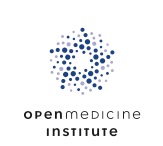
The OMI’s plans include…well, almost everything :); treatment trials, international research efforts, physician networks….
The Open Medicine Institute opens its new website to reveal a commitment to bring a ‘big data’ focus to produce research and treatment breakthroughs in complex disorders such as chronic fatigue syndrome. Among other things a top ten list of research priorities, a patient registry, a biobank and a bioinformatics platform has or is being produced and more is on the way. This is thinking big on a big scale :). An interview with Dr. Kogelnik is coming up shortly.
Best Networking
No less than 28 major ME/CFS figures participated in OMI’s OMI-MERIT’s initiative to prioritize and fund critical research needs. The OMI also enlisted major ME/CFS physicians to participate in the CDC’s diagnostic assessment trial which is being expanded this year.
Biggest Mismatch
CDC Toolkit vs IACFS/ME Primer – in the contest between the ‘brochure’ and the ‘Primer’, the IACFS/ME primer wins hands down. With the Primer in hand, the CFS Federal Advisory Committee (CFSAC) immediately voted to request that the CDC can the Toolkit.
Most Unlooked For and Exciting Political Moment
Courtney Alexander’s public moment with President Obama results in a top political adviser meeting with the NIH (for the first time with any disease) and promising to elevate chronic fatigue syndrome’s importance.
Biggest ME/CFS Bummer
The hope that the FDA was going to use Ampligen as a poster child for its commitment to get drugs to needy patients more quickly faded as an FDA Advisory Committee followed a decidedly negative FDA presentation and mostly voted the drug down. We await the FDA ruling on Feb 2nd for the final determination.
Second Biggest ME’/CFS Bummer
XMRV is second biggest bummer for 2012 only because the big hits the finding had taken in 2011 made it’s eventual fate seem likely. Still, the negatives were huge with Dr. Mikovits and the WPI both taking big hits to their reps. On the positive side, the press coverage and research bring ME/CFS to the fore in a way it had never been before.
Biggest General Health Care Implications
In a surprise the Supreme Court upholds an Affordable Health Care Act that outlaws penalties for pre-existing conditions and promises to provide better health insurance opportunities for people with lower incomes
Biggest Impact by Smallest Country
Norway, (that’s the ‘Kingdom of Norway’ , thank you), population 5,000,000, becomes the center of ME/CFS patients hopes as two oncologists doggedly pursue and ultimate publish a study suggesting that Rituximab, a chemotherapy/autoimmune drug, of all things, produces fantastic results in some people with this disorder.
Most Exciting Moment
See above.
Most Untimely Grant Denial
Just months after the Rituximab trial results are published, the Congressionally Mandated Defense Program not only fails to fund the CFIDS Associations multi-center, autoimmune autoantibody grant proposal backed by numerous high-level researchers, but reportedly shreds it in the process of doing so.
Biggest Odds Beater
The CFIDS Association of America beats out hundreds of other proposals to place two proposals in the top four. One of their proposals is the top winner.
Biggest Say What? Moment
Poised with the opportunity to turn the chronic fatigue syndrome world on its head (and win a small country ever-lasting glory, at least in the ME/CFS world) , the Norwegian Research Council votes not to fund a definitive multi-center Rituximab study, leaving Norwegian befuddled and wondering what went wrong.
- See the Rituximab Watch for more
 The Missing In Action Awards – The two winners for the most long awaited studies…
The Missing In Action Awards – The two winners for the most long awaited studies…
- The long awaited Baraniuk spinal fluid followup study – finished enough to be on posters at Ottawa a year ago- doesn’t make to publication last year.
- The double blinded Valycte Montoya Study begun when….err….way back then…remains in limbo.
Oddest Moment
Materials disappear shortly after Dr. Mikovits is let go from the WPI, lawsuits are filed, a research assistant fesses up, and Dr. Mikovits spends a few nights in jail.
Most Graceful ‘Retreat’
After forcefully defending the WMRV discovery to the point of calling the motives of other researchers into question, Dr. Mikovits calmly puts the XMRV discovery to bed at the Lipkin press conference.
Biggest Shock / Community Loss
Devoted supporter, theorist and developer of the Methylation protocol used by many, Rich Van Konynenburg dies in his sleep.
Biggest Advocacy Loss
Marly Silverman, the founder of PANDORA and numerous other efforts ‘retires’ , removing one of the most dynamic voices from the community.
Biggest Advocacy Win
Advocates, somehow, prod the FDA into holding the first stakeholders meeting for an individual disease since HIV..An advocacy Teleconference is held and a Stakeholders Meeting is on tap for Spring, 2013..
Most Gut Wrenching Moment
Inspiration to many, long term chronic fatigue syndrome patient Patrick Kelley takes his life after many years of illness.
Blogger Award
The Year of the King – Llewelyn King and Deborah Warof travel across the country interviewing patients and professionals fpr their ME/CFS Alert page. You can find interviews with Dr. Peterson, Dr. Chia, Dr. Kogelnik, Bob and Courtney Miller, the Whittemores and more at ME/CFS Alert.
Most Published Patient
Tom Kindlon easily wins the award by writing strong enough rebuttals and analyses of CBT/GET trials to get him cited on medical indexes.
Biggest Individual Disappointment
Long time ME/CFS champion, FDA Advisory Committee member Dr. Komaroff votes no on every question for Ampligen, sparking memories of his enthusiastic review of the Dr. Reeves CDC CFS program, not long before Dr. Reeves was canned.
Least Looked Forward to Decision
The FDA, taking the votes of the Advisory Committee, into account, announces Ampligen’s fate on Feb 2nd.
Biggest Shoes Not Filled
A tie between Dr. Nancy Lee of CFSAC and Dr. Maier of the NIH following in the steps of two particularly dynamic individuals, Dr. Wanda Jones and Dr. Dennnis Mangan – who end up being sorely, sorely missed..
Closest Loss
After pulling into first place the ME/CFS Community Center runs out of gas in the last two days of the Citgo Gas Refueling contest and just misses winning $5,000 in gas cards for the ME/CFS Community
Biggest Contest Win
NIDA pulls out 20K and Phoenix Rising comes roaring back in the last day to win 10K in Chase Community Giving Contest. (Runnerup – just after that CFS Solutions of Michigan brings in $5,000 in Citgo gas cards in the Citgo Refueling contest.)
Best Community Effort
FDA says they are ‘delighted and overwhelmed’ by the 750 comments they receive for the Ampligen hearing. The ME/CFS community then delights them more by overwhelming FDA servers during the hearing…and then comes the patient testimony….If the panel didn’t get it by then they never will.
Most Comprehensive ME/CFS Book
In a year featuring a bevy of chronic fatigue syndrome treatment books (to be reviewed later) Erica Verillo’s new ebook stood out in its size and comprehensiveness.
Best Mind/Body Resource Blog for ME/CFS
Johannes Starkes new CFS Recovery Project blog promises to provide all manner of exercises designed to relax and rejuvenate.
Biggest Individual Reversal
Many stories could fit this category but the testimony I read at the FDA Advisory Committee meeting in Dec. 2011, from Mary Dimmock’s son, dating back a few years, really struck me. Mary’s son went from treking solo across China, Nepal and other parts of Asia. to being often bed ridden in almost a flash. What a huge reversal for that young man.
First ME/CFS Murder Mystery!
It’s a mystery in more ways than one as a bedbound ME/CFS sleuth investigates an old murder when he returns home to try and recover in “The Missing Room”.
Newest Website
Four days old…just a baby…that would be this one 🙂
SUPPORT HEALTH RISING



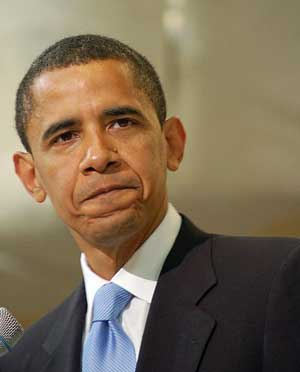
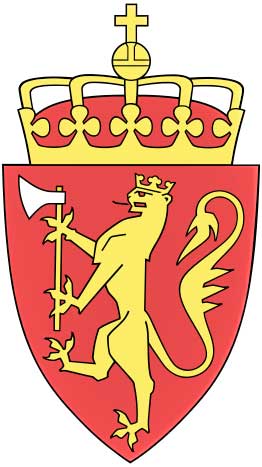


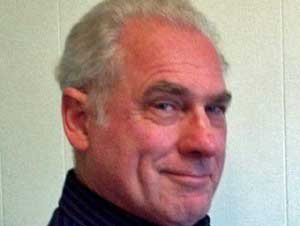
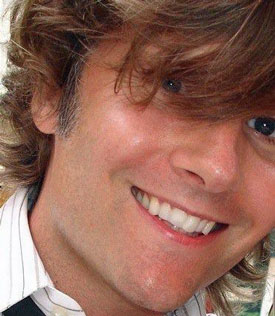
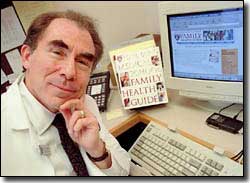

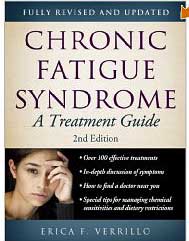




Interesting list! I hadn’t heard of the murder mystery. That makes at least six novels about CFS/ME by now.
Last year I wrote what I believe is the first play about CFS/ME, based on my 2011 debut novel. Its future is sadly uncertain at the moment, as the person who originally requested it for her theatre has disappeared, but I have a prospective director lined up, so hoping for a 2014 premiere… I’m hoping to translate it into English, but I will have to figure out the implications for its future in Finnish theatres (and the future of my novel, for which I’m hoping to acquire translation rights some day).
Good luck with that…The first play on ME/CFS. I missed your debut novel though….is that in English?
Hopefully at some point it will be. I’m trying to find an international publisher, but my Finnish publisher is so small it’s pretty much impossible to get an agent. So I’m trying to get a CFS/ME organization, a disability organization or a normal publisher with special interest in disability to pick it up (or my following novel, also about CFS/ME).
Heck, I could translate it myself, if I have a native speaker check it. But I really wouldn’t like to go the self-publishing route again, it sucks.
“Biggest Individual Disappointment”? BS, Komaroff had valid reasons not to vote for approval of Ampligen. What a slanderous sleight of hand to omit this. Komaroff never does or say anything without having his facts very well checked.
But hey, you call Mikovits actions a “Most Graceful ‘Retreat’”. She was fearmongering about HGRV, shouting about conspiracy and fraud, accusing John Coffin and Robert Silvermann of all kinds of malicious behavior. And now everything is supposed to be dandy? Graceful my ass, Mikovits owes the ME/CFS community and the scientific community an equally public apology.
But please, censor any dissenting voices, make Komaroff the villain and Mikovits the saint, while there is valid reason to assume that Mikovits is a loudmouthed bullshitting fraud.
And have fun with your “Body/Mind/Dualism” BS – that isn’t so far away from what Wessely and Co think, BTW.
You’re skirting the boundaries with your profanity, Tony. The next one will be blocked. Of course Komaroff had valid reasons for not approving Ampligen but I suggest he had even more reasons for approving it. Such as a population that really needs more treatment options..Well recognized doctors such as Dr. Peterson, Dr. Lapp or Dr. Bateman who’ve found it an effective and even, at times remarkable drug. he could have considered requesting the FDA conditionally approve Ampligen under tight restrictions. There’s also the factor that a no vote could end Ampligen as an option for ME/CFS; after all it took 20 years to get to this point.
Let’s just say Dr. Mikovits did retreat gracefully and, whatever else happened (and alot of bad stuff happened; I heartily agree with that :)), when something like that happens I think that should be acknowledged.
I don’t know the difference between Johannes approach and CBT; I don’t think they’re the same – Johannes is using techniques from neurolinguistic reprogramming, Buddhism and other kinds of mindfulness practices. These kinds of protocols helped him and they do help me and I believe given the evidence of sympathetic nervous system upgregulation, which grows stronger every year, that it makes sense that they can be quite helpful, particularly for people with milder cases of ME/CFS.
In any case, my standard for putting something on the website is if it helps not if it fits in one category or the other. I feel that if it’s helpful for some people then others will surely benefit. ME/CFS is a very heterogeneous condition and there will be a host of things that help some people and don’t help others. Regarding CBT at the FDA Advisory hearing Dr. Bateman said it helps people who are not managing their condition well to manage it batter.
I have great respect for and appreciation of Prof Komaroff, but I, too, was surprised by his “no” votes. I also remember being surprised a few years back, when he was one of a small group of reviewers of the CDC’s work on ME/CFS – and the review marked the CDC’s work in the field as “excellent” or “adequate” or something to that effect.
These two things seemed out of character to me! Apart from them, though, I am deeply grateful for all Prof Komaroff has done and is doing for the ME/CFS patient group – I wish there were more people like him.
Thanks for the post, Cort!
<>
I missed this. How do you mean, “shreds it”? What happened?
The quote was cut out in my last try… Here I go again:
“Most Untimely Grant Denial
Just months after the Rituximab trial results are published, the Congressionally Mandated Defense Program not only fails to fund the CFIDS Associations multi-center, autoimmune autoantibody grant proposal backed by numerous high-level researchers, but reportedly shreds it in the process of doing so.”
I missed this. How do you mean, “shreds it”? What happened?
I was told they just beat the heck out of it…were very critical of it and not particularly supportive. I was told that most of the CFS grant proposals fared the same.
Thanks for the great highlighting of last year’s big CFIDS/ME events.
It would be great if you could interview Montoya and post an update on his work. I’ve been in a couple of his studies but nothing appears to be getting published or finished. Not just the Valycte trial you mention but an EEG study and a blood pathogen immune marker study for which they drew a lot blood (I think this was the national multi-center trial). That was 2 1/2 years a go. Any updates you could get out of them would be great, even if it that they are just working on trying to get stuff published.
Agreed. He would be top of my list…because, as you note, there’s lot of interesting stuff that will hopefully show up. I am trying 🙂
Sometimes studies take ages to get published. :-/ Like the low dose naltrexone for fibromyalgia study #2. The first one was published in 2009, the second one got from the same group got just as good results. Very preliminary results were released at the Glasgow LDN conference in April 2010, more results were released in an important conference (AAPM) in early 2012, then some data from the study was released as a weird statistical(?) paper that went way over my head, but from what I’ve seen the actual study results still haven’t been published in a medical journal (conference publications aren’t the same, since they aren’t peer-reviewed), almost three years after the preliminary results. I’m sure they’ll be out soon, but it’s a long time to way.
Thanks for the great summary.
Re the Closest Loss “After pulling into first place the ME/CFS Community Center runs out of gas in the last two days of the Citgo Gas Refueling contest and just misses winning $5,000 in gas cards for the ME/CFS Community”
CFS Solutions of West Michigan did win $5,000 in the Citgo contest. We made a valiant try to vote 2 groups in, but the second group fell short on votes.
Congratulations! I didn’t realize that you guys got in…:)
Great post – you really have your finger on the pulse – 🙂
You know my stance on the pathogenesis of CFS/Fibromyalgia, so no surprises on the XMRV debacle here. I never undertood they hype given that clearly if everyone doesn’t have it – it can’t be the cause. I often wonder where the logic went in medical ‘science’.
It seems there is a greater acceptance of views such as mine throughout Europe where the medical community is starting to cotton on about the central role of the ANS. So there are many other people like Dr Newton who do good work in this area.
However, unless pharmaceutical solutions are involved, only continued support by people who recover or are still looking to recover will ensure that the voices of these scientist finally get heard and that they somehow get funding to continue their work.
That’s why a higher profile for the illness and a louder joint voice is so important here, because I pesonally don’t believe that a “cure” is going to arrive at your local pharmacy any time soon.
In the end, I suspect that recovery stories will always speaker louder than theory alone because no matter how sound or true, unless the wider medical community gets behind it, it may always be obscured by a mass of irrelevant and hence confusing science.
Things are moving faster than ever – we are lucky to have someone like you to promote the cause – well done. I think we will see some real changes in the next few years.
Thanks Dan,
I’m working on a recovery stories database. I, too agree that the ANS is the key; I feel it in my guts – sometimes quite literally. Congratulations on your recovery by the way. I look forward to reading your book.
You’re right about the pharmacy….that’s going to take awhile..
Hi Cort
I have also started collecting recovery stories which I share on my site (only a few so far).
CFS Unravelled will be out on Amazon shortly – being a kindle book (can be read on any device including PC), people will also get a link to the video lecture which complements the book.
There will be a short window where I can give the book away for free, if you like I can let you know when that happens so others can get a free copy.
Please do let me know and we can organize something .